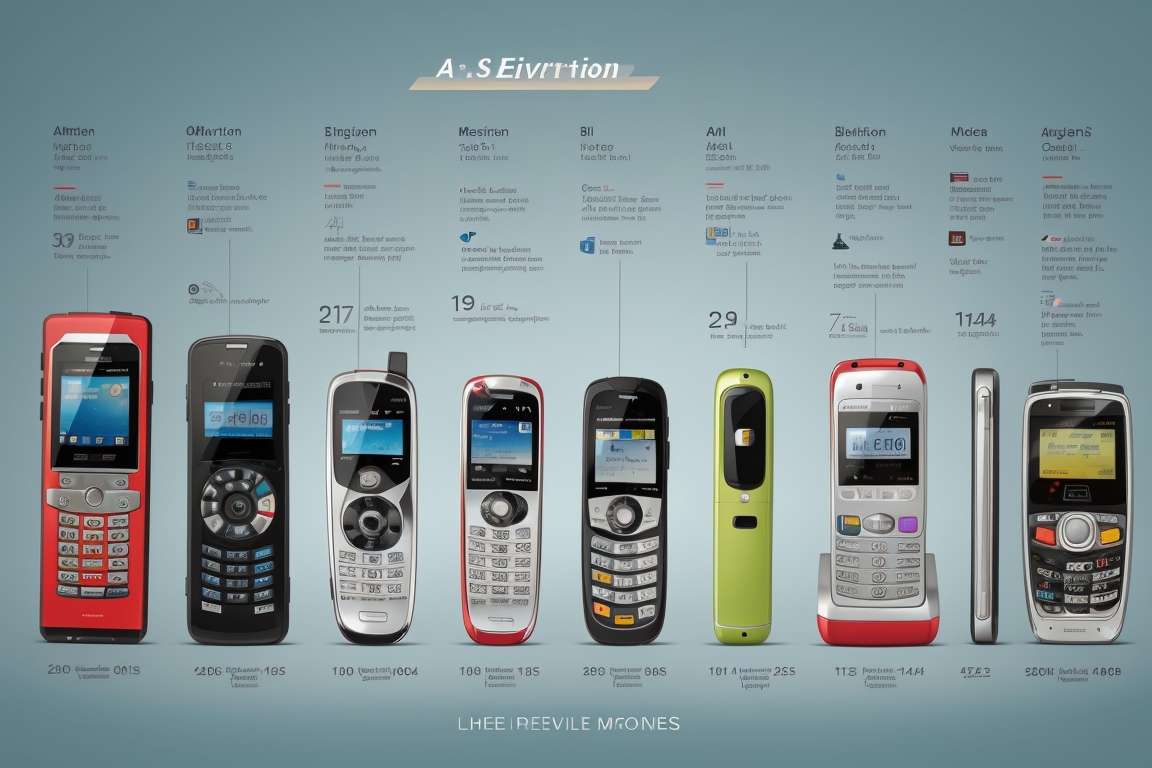As the world’s largest consumer and producer of mobile phones, China faces significant challenges in managing the growing electronic waste (e-waste) generated by these devices. To address this issue and promote sustainability, there is a need to transition towards a circular economy for mobile phones. In this article, we will explore the concept of a circular economy, its benefits, and various strategies China can adopt to create a more sustainable and environmentally friendly mobile phone industry.
1. Understanding the Circular Economy
What is a Circular Economy?
A circular economy is an economic model designed to minimize waste and maximize the value of resources by promoting the continuous use, repair, refurbishment, and recycling of products. In contrast to the traditional linear economy, which follows a “take, make, dispose” pattern, a circular economy aims to keep products and materials in use for as long as possible.
Advantages of Circular Economy for Mobile Phones
Transitioning to a circular economy for mobile phones offers several advantages, including reduced e-waste, conservation of resources, and decreased environmental impact. By adopting circular practices, China can mitigate the environmental and social consequences associated with the rapid growth in mobile phone consumption.
2. Challenges of the Linear Economy
Impact of Linear Economy on E-waste
The linear economy approach in the mobile phone industry has led to a staggering amount of electronic waste. As consumers frequently upgrade their devices to newer models, discarded mobile phones contribute significantly to e-waste mountains.
Environmental Consequences
Improper disposal and inefficient recycling of e-waste lead to environmental pollution and health hazards. Toxic substances from electronic components can contaminate soil and water, posing risks to both humans and ecosystems.
3. Extended Producer Responsibility (EPR)
Implementing EPR in the Mobile Phone Industry
Extended Producer Responsibility (EPR) is a policy approach that holds manufacturers responsible for the entire lifecycle of their products, including their end-of-life management. By implementing EPR, mobile phone manufacturers will be incentivized to design devices that are easier to repair, upgrade, and recycle.
Encouraging Manufacturers to Design for Sustainability
Encouraging manufacturers to design products with sustainability in mind can result in longer-lasting mobile phones with replaceable parts and modular components, reducing electronic waste generation.
4. Collection and Recycling Infrastructure
Building Efficient E-waste Collection Systems
China can develop a robust collection infrastructure for e-waste, including convenient drop-off points and recycling centers across the country. Encouraging consumers to return their old devices for proper recycling will ensure that valuable materials are recovered.
Promoting Responsible E-waste Recycling
Promoting responsible e-waste recycling practices, including safe dismantling and recycling of electronic components, will prevent hazardous substances from polluting the environment.
5. Embracing Refurbishment and Remanufacturing
Extending the Lifespan of Mobile Phones
Encouraging the refurbishment and remanufacturing of mobile phones can significantly extend their lifespan, reducing the need for frequent replacements.
Reducing Demand for New Devices
Promoting the sale of refurbished mobile phones at a lower cost can also reduce the demand for new devices, thereby reducing resource consumption and e-waste generation.
6. Consumer Awareness and Participation
Educating Consumers on E-waste Management
Educating consumers about the environmental impact of e-waste and the benefits of responsible disposal will encourage them to participate in recycling programs.
Encouraging Responsible Disposal
Providing incentives or discounts for consumers who recycle their old mobile phones can further motivate responsible disposal.
7. Collaboration with Stakeholders
Partnerships with Manufacturers, Retailers, and Government
Collaboration between mobile phone manufacturers, retailers, and the government can lead to effective e-waste management strategies and the establishment of circular practices.
Supporting Innovation and Research in Recycling Technologies
Investing in research and development of advanced recycling technologies can improve the efficiency of e-waste recycling processes.
8. Policy and Regulation Framework
Developing Comprehensive E-waste Regulations
Implementing comprehensive e-waste regulations and enforcement mechanisms will ensure that all stakeholders adhere to circular economy principles.
Incentivizing Circular Practices
Providing tax incentives and other benefits to businesses adopting circular practices will promote the circular economy’s adoption.
9. Promoting Green Supply Chains
Sustainable Sourcing of Raw Materials
Encouraging sustainable sourcing of raw materials for mobile phone production can reduce environmental impacts and reliance on scarce resources.
Reducing Environmental Impact During Production
Implementing eco-friendly production processes can further minimize the ecological footprint of the mobile phone industry.
10. Economic Benefits of Circular Economy
Job Creation and Economic Growth
Transitioning to a circular economy can create new job opportunities in recycling, remanufacturing, and refurbishment sectors, contributing to economic growth.
Reducing Dependency on Resource Imports
By adopting circular practices, China can reduce its dependency on resource imports and become more self-reliant.
11. Case Studies of Successful Circular Economy Initiatives
Examples from Other Countries
Studying successful circular economy initiatives from other countries can provide valuable insights and best practices for China’s mobile phone industry.
Conclusion
The shift towards a circular economy for mobile phones presents a transformative opportunity for China’s mobile phone industry to become more sustainable and environmentally responsible. By embracing extended producer responsibility, efficient collection and recycling infrastructure, refurbishment and remanufacturing, and promoting consumer awareness, China can build a circular economy that reduces e-waste and conserves valuable resources. Collaborative efforts with stakeholders, effective policy frameworks, and sustainable supply chain practices can pave the way for a greener and more circular future for mobile phones in China















